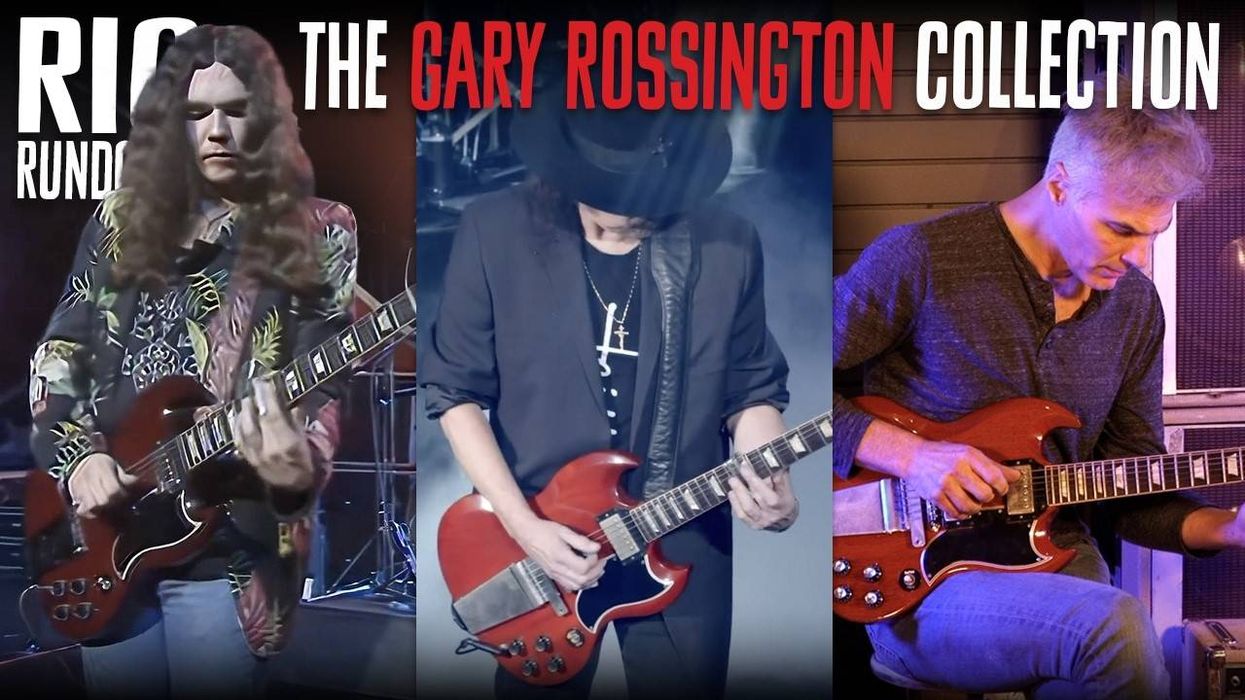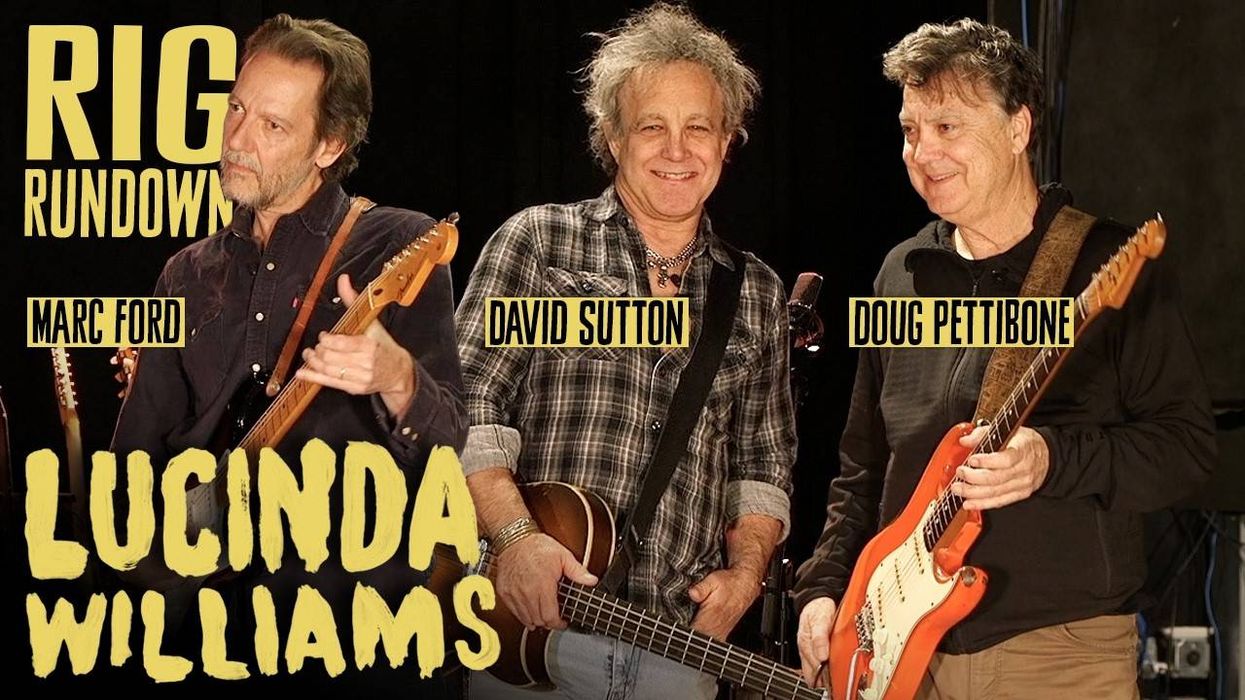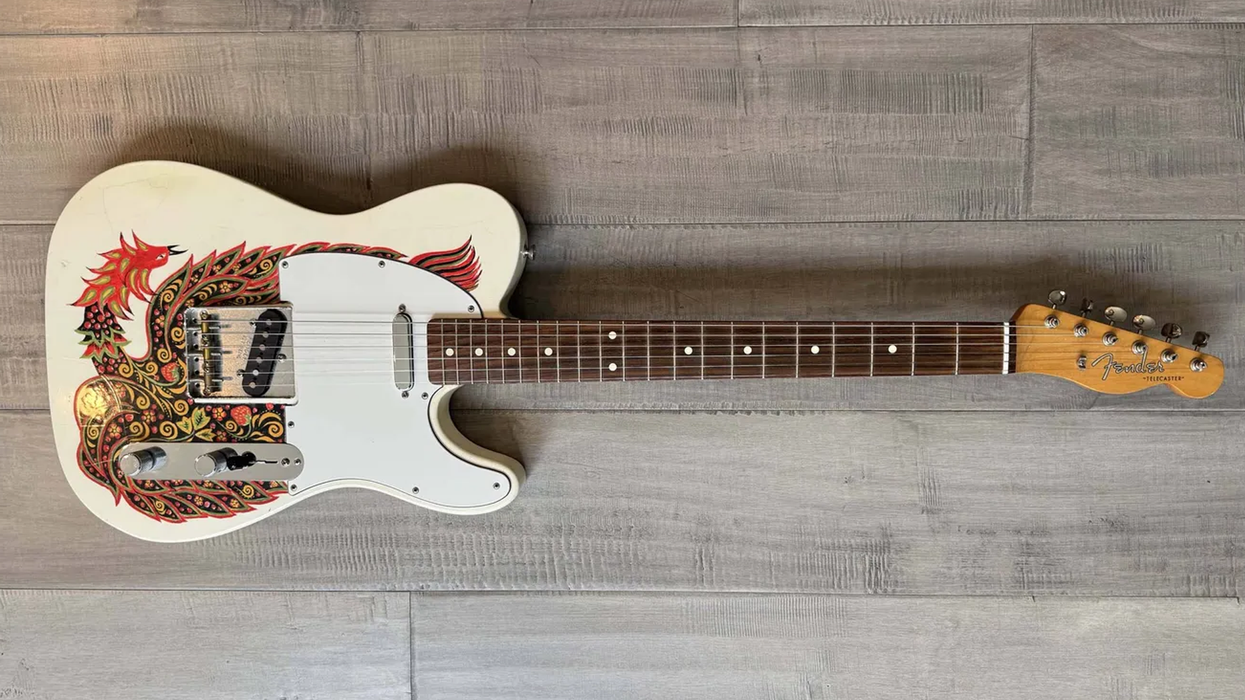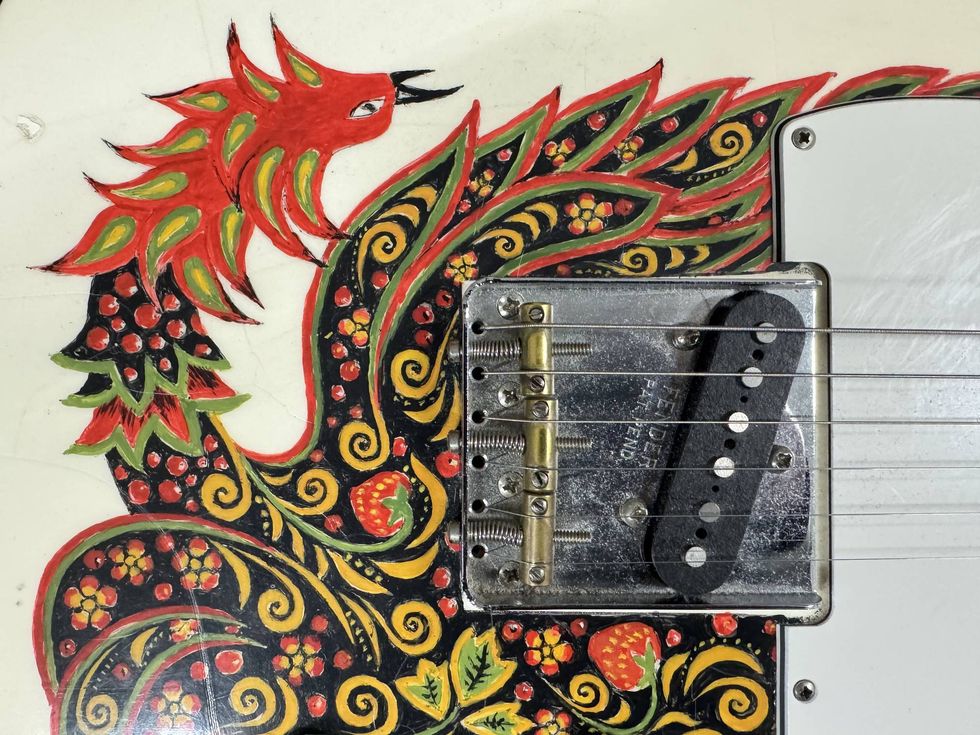I live in Nashville, so most of my Uber drivers, bartenders, and waiters are musicians. Every time I order a pizza, I wonder if the kid delivering the pie plays better than I do. My UPS guy mentions Rig Rundowns when he stops at my door with more gear I don't need, but can't seem to stop buying.
Aside from my family members, there are not a lot of non-musicians in my life. When I'm around civilians, I suspect they don't know what the hell I'm talking about half the time. I live in a world where “'verb" is a noun, a “cat" is a person, an “axe" is an instrument, “to blow" is to play music with abandon, and “bad" sometimes means good.
In the July 2014 Last Call, I wrote “A Dictionary of Musician Idioms." They say writing a sequel means you're creatively bankrupt, and I'd have to agree. So, for some next-level extra nerd fuel, let's explore the origin of some common music terminology in this update. I give you an unofficial limited etymology of music terms:
• Cat: One of my favorites terms for a fellow human is “cat." Musicians began using the word to refer to the quintessential musicians who share many feline traits—staying out all night, remaining slightly aloof from society, resourcefulness, and self-reliance. Best of all, cats always land on their feet. If you look this up in The Musician's Dictionary, you'll see a picture of Miles Davis.
• Man: Ever wonder how “man" entered the hipster vocabulary as a gateway to common usage? It started with musicians. As recently as 60 years ago, it was not uncommon for white people, particularly in the South, to address grown African-American men as “boy." So black musicians began addressing each other as “man" whenever possible, in defiance, hoping that it would catch on. As in:
“How you doing, man?"
“Great, man, how are you?"
“Man, I'm cool. “
Eventually, it was embraced by musicians of all races and then crept into the hippie lexicon, and onward.
• Gig: Some historians think the term “gig" originated from a dance called a “gigue," but a more colorful explanation comes from early jazz in New Orleans, involving horse-drawn carriages called gigs. The story goes that black musicians were playing on the streets and being hassled by the po-po, who claimed it was illegal to play while standing on the avenues. To avoid being arrested, musicians played standing on those carriages. If you were playing from a gig, you were technically not standing on the street and couldn't be busted.
• Swinging: As in, “those cats were swinging!" The Oxford English Dictionary claims “swing" came from the archaic word “swinge," which means to strike hard or beat, and swinge begat the word swing, which is informally synonymous in olde hipster for having sex. I love swing, but it does not feel sexy to me. Prince, funk, some classic rock, and Sade? Sure, that's sexy. But I don't immediately think of sex when listening to Glenn Miller. Maybe it's a generational thing. I bet the term came from the fact that you can almost see the groove swinging back and forth when music swings. And everybody starts swinging their arms, butts, etcetera in time, so “swinging" just works.
• Jazz: This one was definitely connected to sex, since the term “jazz" was early 20th century slang for having at it. The Oxford English Dictionary maintains that jazz derives from the word jasm, which meant energy, vitality, spirit, pep. But that seems a bit straight, right? Other eggheads claim jazz was a baseball term, first seen in print as a reference to “Ben's Jazz Curve"—how early 1900s minor-leaguer Ben Henderson tagged his trademark curveball. I like that one best, but it still seems like pretty thin soup. My guess is that, in music, maybe jazz, started as a scat word and stuck.
•What the Hell is John Talking About?: If you've watched some of my gear demos online, you've probably heard me say “let's dime this pig." I'd heard rockers use the term “dime" for a decade before I figured out that a dime is 10 cents, so that means jacking your volume up to 10. I'm assuming most of you put that together on your own, but for those a tad slow, like me, now you know.
This is our phraseology. So before the academic community gets it wrong, please use the comments section below to add your own explanations about the origin of words in our language. Like, what's a “groadie?" Is it a groupie who helps haul your gear, or a roadie who's inappropriately hands-y? Let 'em rip!


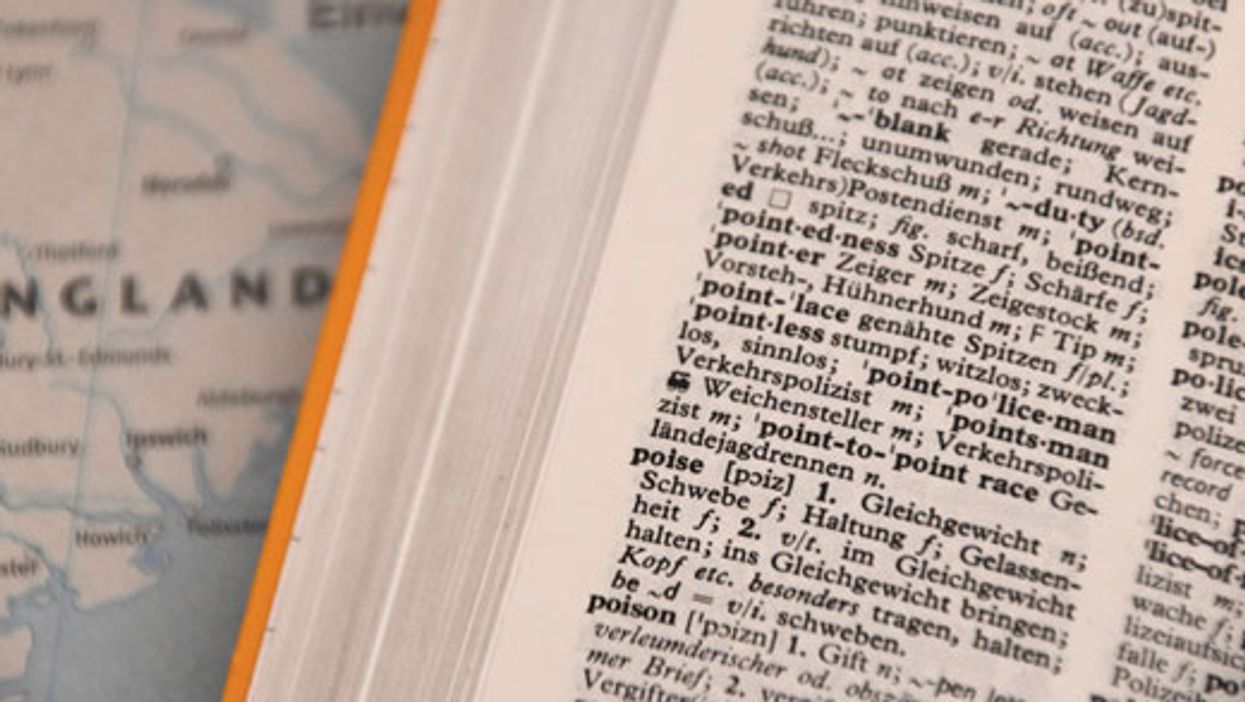




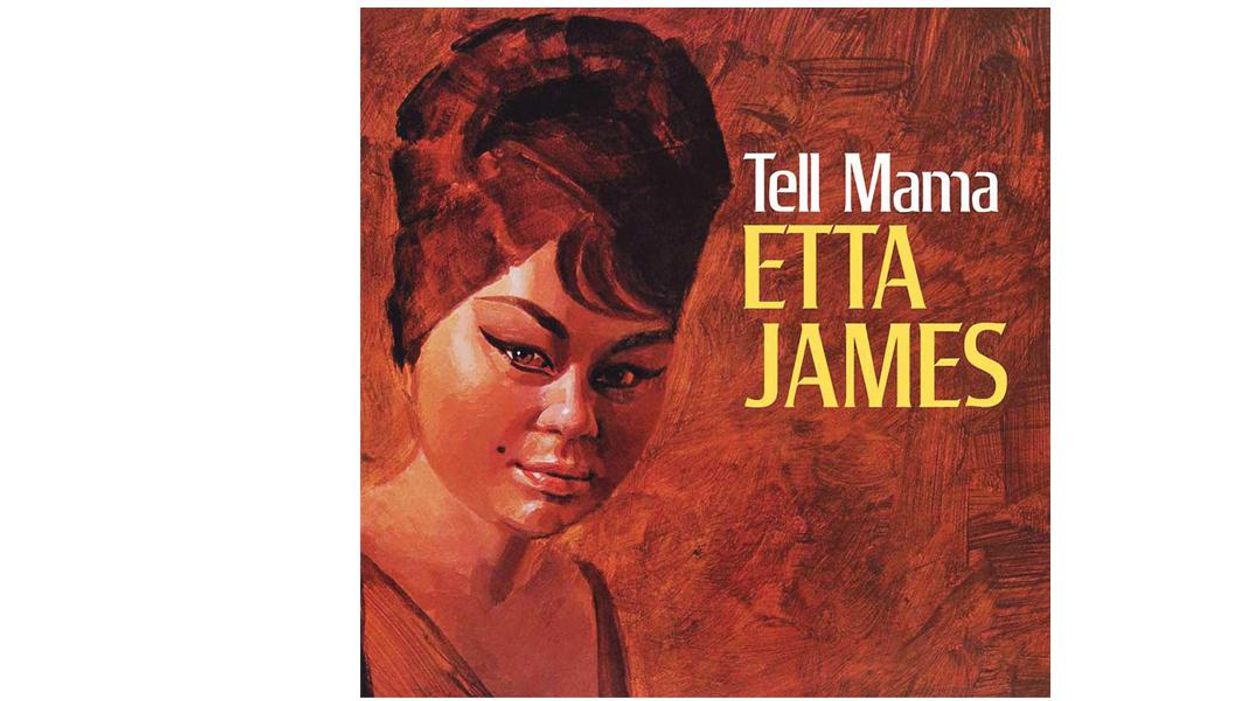


![Rig Rundown: Russian Circles’ Mike Sullivan [2025]](https://www.premierguitar.com/media-library/youtube.jpg?id=62303631&width=1245&height=700&quality=70&coordinates=0%2C0%2C0%2C0)

